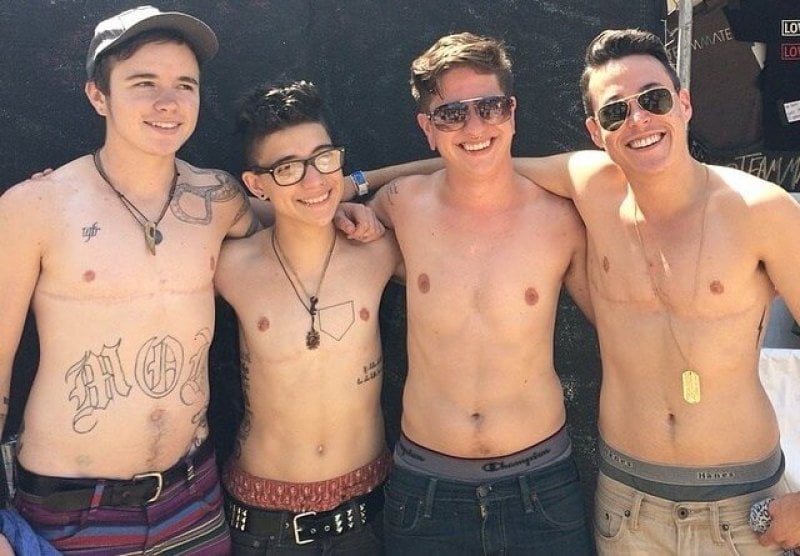We spoke with … men who transitioned as adults to the bodies in which they feel more comfortable.
…
[T]heir diverse backgrounds provide further insight into how race and ethnicity inform the gender divide in subtle and sometimes surprising ways. [Trystan Cotten, 50, Berkeley, Calif.]: Life doesn’t get easier as an African American male. The way that police officers deal with me, the way that racism undermines my ability to feel safe in the world, affects my mobility, affects where I go. Other African American and Latino Americans grew up as boys and were taught to deal with that at an earlier age. I had to learn from my black and brown brothers about how to stay alive in my new body and retain some dignity while being demeaned by the cops.…
[Zander Keig, 52, San Diego]: Prior to my transition, I was an outspoken radical feminist. I spoke up often, loudly and with confidence. I was encouraged to speak up. I was given awards for my efforts, literally — it was like, “Oh, yeah, speak up, speak out.” When I speak up now, I am often given the direct or indirect message that I am “mansplaining,” “taking up too much space” or “asserting my white male heterosexual privilege.” Never mind that I am a first-generation Mexican American, a transsexual man, and married to the same woman I was with prior to my transition.Read full, original post: Crossing the divide































